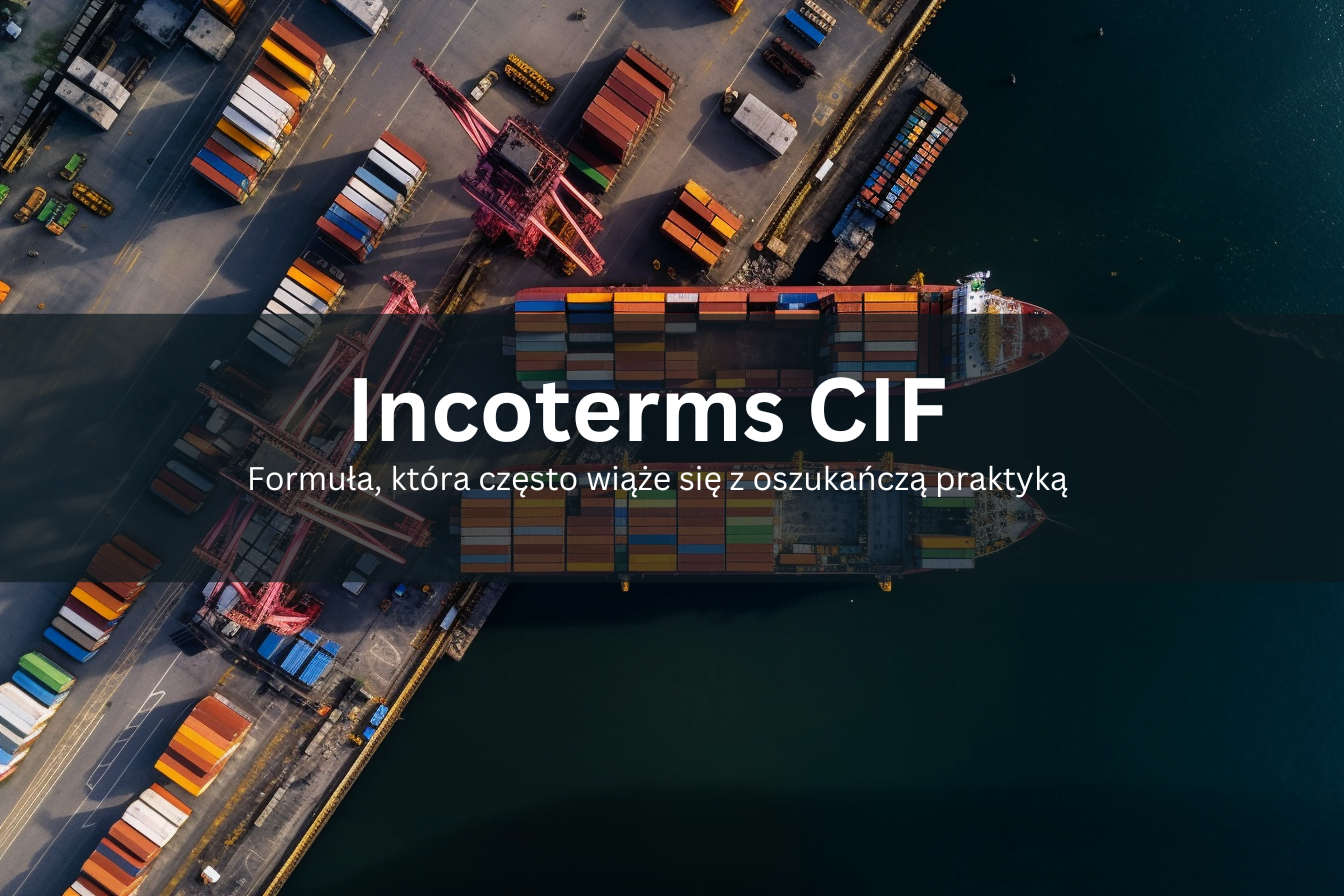What are INCOTERMS?
INCOTERMS are international trade rules that apply worldwide. They are used in international transactions to define responsibilities, costs and risks between buyer and seller. The author of Incoterms is the International Chamber of Commerce (ICC), which created the rules to facilitate smooth and efficient international trade.
What is CIF Incoterms?
Incoterms CIF (Cost insurance adn freight) - Cost insurance and freight -> seller is responsible for delivery of goods to buyer. Applies to transport only marine or inland waterway. The seller is responsible for loading the cargo on board the vessel, further risks of loss of goods or damage are already the responsibility of the buyer. The seller has fulfilled his obligations and the risk will be on us.
In a CIF, there are two relevant ports: the port where the goods are to be loaded on board and shipped and the port of destination where the goods are to be delivered. The risk shifts from the seller to the buyer once the cargo has been placed on board the vessel at the port of loading. It is the seller's responsibility to contract with the carrier so that the goods actually arrive at the port of destination. For example, if the goods are shipped in Yantian, China, and we want them delivered, the seller has the responsibility to enter into such a carriage contract with the carrier. However, the risk passes to us once the goods are loaded onto the ship in Yantian.
When specifying INCOTERMSA, the following formula is used -> CIF + add port of destination e.g. Gdansk.
The port of discharge will always be stated in the contract, but it is worth ensuring that the port of shipment is also stated in the contract. This can come in handy when, for example, you want to compare the price for leaving a particular port with other companies.
Vendor responsibilities:
- The seller must provide the goods as well as the commercial invoice and other necessary documents.
- The seller is obliged to deliver the goods by placing them on board and to conclude a contract for the transport of the goods from the port of loading to the agreed port in the contract and to inform about the date of delivery of the goods.
- The seller bears the risk of damage to the goods until they are delivered on board the ship, after which the insurance must be relied upon.
- The seller must insure at least up to the port of destination and provide the buyer with proof of insurance, e.g. a policy or certificate. Also, if the buyer wishes to take out additional insurance on the cargo, the seller must make available all the necessary data, for example the name of the ship on which the cargo is sailing, etc.
- The seller must also provide the buyer with a shipping document, where all the purchased goods are included and whereby the buyer can collect the goods from the port.
- The seller is responsible for carrying out export clearance and completing all formalities such as export licence, export security clearance, pre-shipment inspection and any other formalities relating to goods passing through third countries.
- The seller also needs to provide the buyer with all the necessary information for import clearance in the destination country.
- The costs of quality control, measurements, weighing are also borne by the seller
- The seller must inform the buyer when the cargo arrives at the loading port
Responsibilities of the buyer:
- The buyer is obliged to pay the costs included in the sales contract
- The buyer is obliged to take over the goods from the carrier at the port of destination if everything has been carried out in accordance with the terms of the
- The buyer bears the risk of cargo damage from the moment the cargo is delivered on board
- The buyer must carry out import clearance and pay customs duties
Discharge costs:
The cost of landing at the port of destination is the responsibility of the buyer, unless the parties have agreed otherwise or the seller's contract with the carrier includes the cost of landing, and in most cases it will, in which case the seller cannot claim this cost from the buyer. Information about unloading at the seller's expense should be clarified in the contract.
Chinese CIF -> what to watch out for and how not to fall for ?
Chinese CIF - is a practice widely encountered in the market. The whole situation is about
The goods will be at the buyer's disposal after payment of port costs and customs duties.
At my Chinese company I have a better offer
This could expose us to very high additional costs
Insurance of goods under CIF conditions:
Under the terms of the CIF, the seller is liable for taking out insurance. Insurance against loss of or damage to goods must be contained at least to the port of destination. Please note that the goods at the port must still be unloaded and delivered by road to the destination. At this section, the cargo will not be insured. The type of insurance is also important; sellers usually take out the cheapest insurance with clause C (Institute Cargo Clause), which can often be quite bumpy. It is worth asking the seller about clause A insurance, which covers a wider range. More on the subject of insurance soon on our blog.
Customs clearance for CIF:
The seller is responsible for export clearance, while the buyer is obliged to customs clearance import duty and its cost as well as customs duties must be paid by the buyer.




